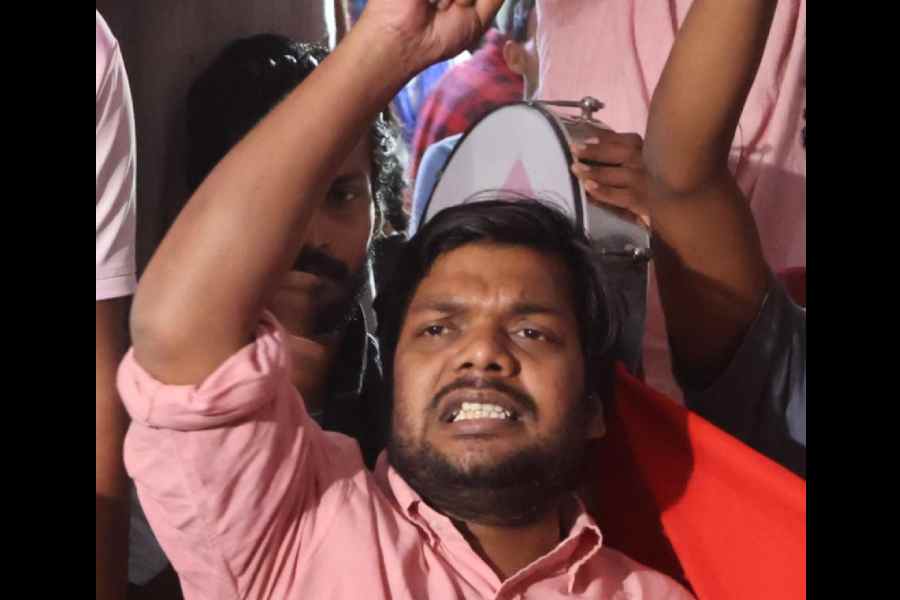The Left has retained three of the four main posts in the JNU students’ union, which has got its first Dalit president in a quarter century.
Dhananjay of the CPIML Liberation-backed AISA on Sunday defeated runner-up Umesh Ajmeera of RSS-backed ABVP by 922 votes in the election for president.
The students’ union has had Dalit office-bearers in the past but Dhananjay is the first from the community to become its president after Batti Lal Bairwa of the CPM-backed SFI, who won in 1996 and 1998. Ajmeera is from the Banjara tribal community of Telangana.
This was the first JNU students’ union election after the pandemic. In 2019, Aishe Ghosh had been elected president, the first from the SFI in 13 years.
On Sunday, the SFI’s Avijit Ghosh was elected as vice-president, Priyanshi Arya of the Birsa Ambedkar Phule Students Association as general secretary, and M. Sajid of the CPI-backed AISF as joint secretary. The ABVP was runner-up for all four posts.
The Left backed Arya after the nomination of its candidate, Swati Singh of the DSF, was cancelled in the early hours of the polling day, Friday.
The Left bloc in the JNU students’ union includes the AISA, SFI, DSF and the AISF.
A committee of teachers supervising the polls told the election committee of students that Swati had faced disciplinary action in the past and was, therefore, barred from contesting the election.
Swati — whose ongoing litigation in Delhi High Court against punishments for protests on campus — is currently on hunger strike demanding a re-polling.
Dhananjay, a PhD scholar at the School of Arts and Aesthetics, is the son of a retired police officer from Gaya in Bihar. He grew up in Ranchi and studied at the RSS-linked Saraswati Shishu Vidya Mandir, later moving to Delhi for higher studies. Here, he got involved with the progressive theatre group, Sangwari.
“I realised later, after I had left school, that Hindutva was subtly inculcated into us,” he told The Telegraph.
“The image of Lord Ram and Hanuman at home had peaceful faces. At school, the image of Ram charging across the sea to Lanka had an angry face. Schools should be places of critical thinking and scientific temperament.”
He added: “Politicisation began in school, though, after conversations with friends and some teachers. The Jagannathpur slum demolitions were happening (in 2011) and I saw communist leaders fight against it.
Dhananjay said: “I did not fully understand politics back then, but I decided to drop my surname in Class X against the wishes of my family. I did so because many people like to identify you only by your caste.”
Dhananjay finds it easier to communicate his ideas through street plays and songs. He said he hoped to counter the vitriol of the Right-wing propaganda that JNU has endured in recent years.
The Left and the ABVP led from their respective strongholds in the elections for councillors. The Left dominated the big schools -- social sciences, international studies, and languages. The ABVP and the independents it supported held sway in the sciences, Sanskrit and newer schools like management.
A new far-Left group, the Progressive Students’ Association, debuted in the JNU students’ union with its candidate Nigam Kumari winning a councillor’s post in the School of Languages.
Friday’s poll turnout was the highest in recent memory, with 73 per cent of the 7,751 student voters casting their ballot.

